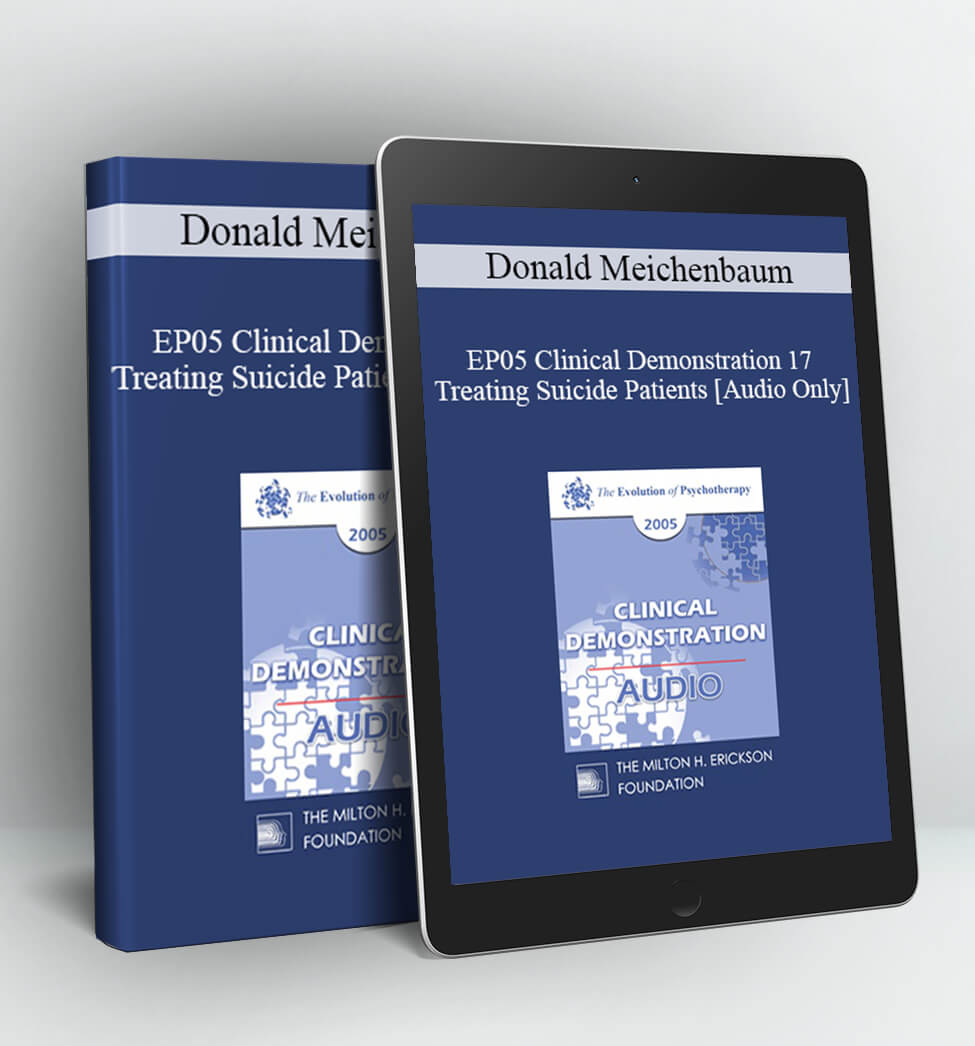NEW DEVELOPMENTS IN THE TREATMENT OF PTSD, COMPLEX PTSD AND CO-OCCURRING DISORDERS: WAYS TO BOLSTER RESILIENCE – DONALD MEICHENBAUM
This is your opportunity to learn the latest developments in the treatment of PTSD, Complex PTSD and comorbid disorders from one of the world’s leading psychotherapists. Dr. Meichenbaum is a cofounder of Cognitive Behavior Therapy and he was voted “one of the 10 most influential psychotherapists of the 20th century.”
Watch this recording and learn the assessment and treatment implications of research findings on neuroscience and resilience. Learn how to use a Case Conceptualization Model that informs treatment decision-making and ways to implement the Core Tasks of Psychotherapy that “expert” therapists employ. You will learn how to provide integrated evidence-based therapy with clients who experience a variety of comorbid disorders including PTSD and Prolonged and Complicated Grief Disorders, suicidal behavior, Substance abuse disorder, Borderline Personality Disorder and Traumatic Brain Injuries. You will also learn how to integrate spiritually-based interventions and psychotherapy.
Dr. Meichenbaum will use his vast clinical and research experience, humorous, engaging, presentation style, along with video case presentations and provide a detailed and practical set of handouts with tools and techniques to be used in your practice.
- Evaluate the nature and neurobiology of resilience as well as related treatment implications.
- Employ a Case Conceptualization Model of risk and protective factors that informs assessment and treatment planning.
- Conduct evidence-based, trauma-focused interventions with a variety of mental health issues and disorders, including complicated grief, Borderline Personality Disorder, suicidal behavior, substance abuse disorders and traumatic brain injury.
- Integrate the Core Tasks of Psychotherapy into your clinical practice, including development of the therapeutic alliance and collaborative goal setting.
- Teach clients intra- and interpersonal coping skills in order to reduce symptoms of PTSD and related mental health disorders.
- Implement strategies to increase client resilience in six domains (physical, interpersonal, emotional, cognitive, behavioral and spiritual) to decrease symptomology and improve level of functioning.
THE NATURE AND IMPACT OF TRAUMA EXPOSURE: THE “UNTOLD STORY” OF RESILIENCE
- Controversies in the field of PTSD and Complex PTSD: “State of the Art”
- What distinguishes the 75% of individuals who evidence resilience VERSUS the 25% who develop persistent PTSD and related co-occurring disorders and adjustment difficulties
- The nature and neurobiology of resilience: Implications for assessment and treatment
- Constructive Narrative Treatment Perspective: How to help clients develop “healing stories” and accompanying coping strategies
- What resilient individuals DO and do NOT do
- A Case Conceptualization Model of risk and protective factors that informs treatment decision-making
SPECIFIC EVIDENCE-BASED INTEGRATED TREATMENT APPROACHES FOR CLIENTS WITH COMORBID DISORDERS
- The Core Tasks of Psychotherapy: What “EXPERT” therapists do
- PTSD is more than a Fear-based Anxiety Disorder: The role of guilt, shame, disgust, anger, prolonged and complicated grief and moral injuries
- Detailed clinical examples of INTEGRATED treatment with clients experiencing a variety of clinical disorders
- Prolonged and Complicated Grief Disorder
- Borderline Personality Disorder
- Suicidal behavior
- Substance abuse disorder (including how to integrate 12 AA step programs and ways to enhance Recovery Transition Coping skills)
- Traumatic Brain Injuries and PTSD
HOW TO IMPLEMENT THE CORE TASKS OF PSYCHOTHERAPY
- Develop, maintain and monitor a therapeutic alliance
- Treatment-informed feedback
- Collaborative goal setting using Motivational Interviewing to nurture hope and positive emotions
- Psycho-education using a CLOCK metaphor
- Teach intra- and interpersonal coping skills: Intervention guidelines on ways to increase the likelihood of treatment generalization
- Bolster the client’s resilience in six domains: physical, interpersonal, emotional, cognitive, behavioral and spiritual
- Integrate spirituality and psychotherapy
- Address the needs of health care providers: Ways to bolster “vicarious resilience”
PRESENTATION OF A CLINICAL TOOL BOX TO BE USED IN YOUR PRACTICE
- Detailed CLIENT-BASED Checklists
- Coping strategies with Grief
- Transition Recovery strategies from substance abuse
- Consumer guidelines on how to evaluate treatment centers
- 12 step AA checklist
- Spirituality-based activities assessment and others
GET NEW DEVELOPMENTS IN THE TREATMENT OF PTSD, COMPLEX PTSD AND CO-OCCURRING DISORDERS: WAYS TO BOLSTER RESILIENCE OF AUTHOR DONALD MEICHENBAUM
Tag: New Developments in the Treatment of PTSD, Complex PTSD and Co-Occurring Disorders: Ways to Bolster Resilience – Donald Meichenbaum Review. New Developments in the Treatment of PTSD, Complex PTSD and Co-Occurring Disorders: Ways to Bolster Resilience – Donald Meichenbaum download. New Developments in the Treatment of PTSD, Complex PTSD and Co-Occurring Disorders: Ways to Bolster Resilience – Donald Meichenbaum discount.










